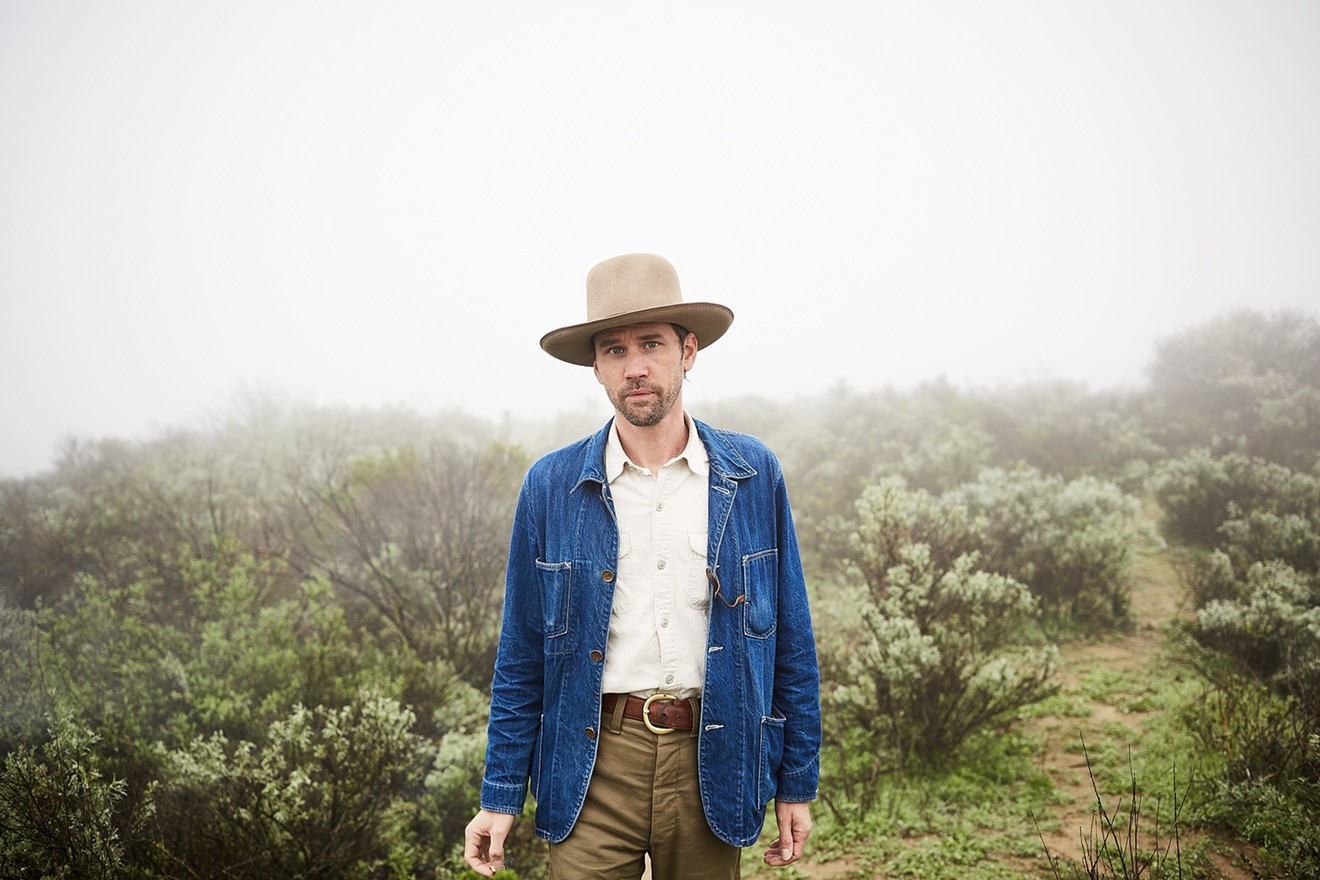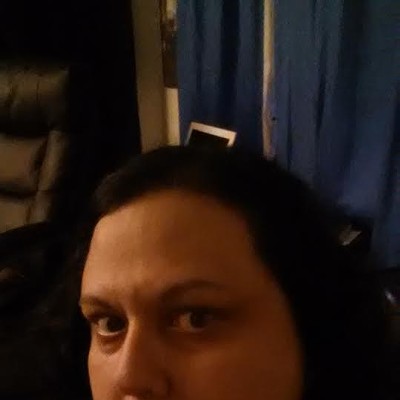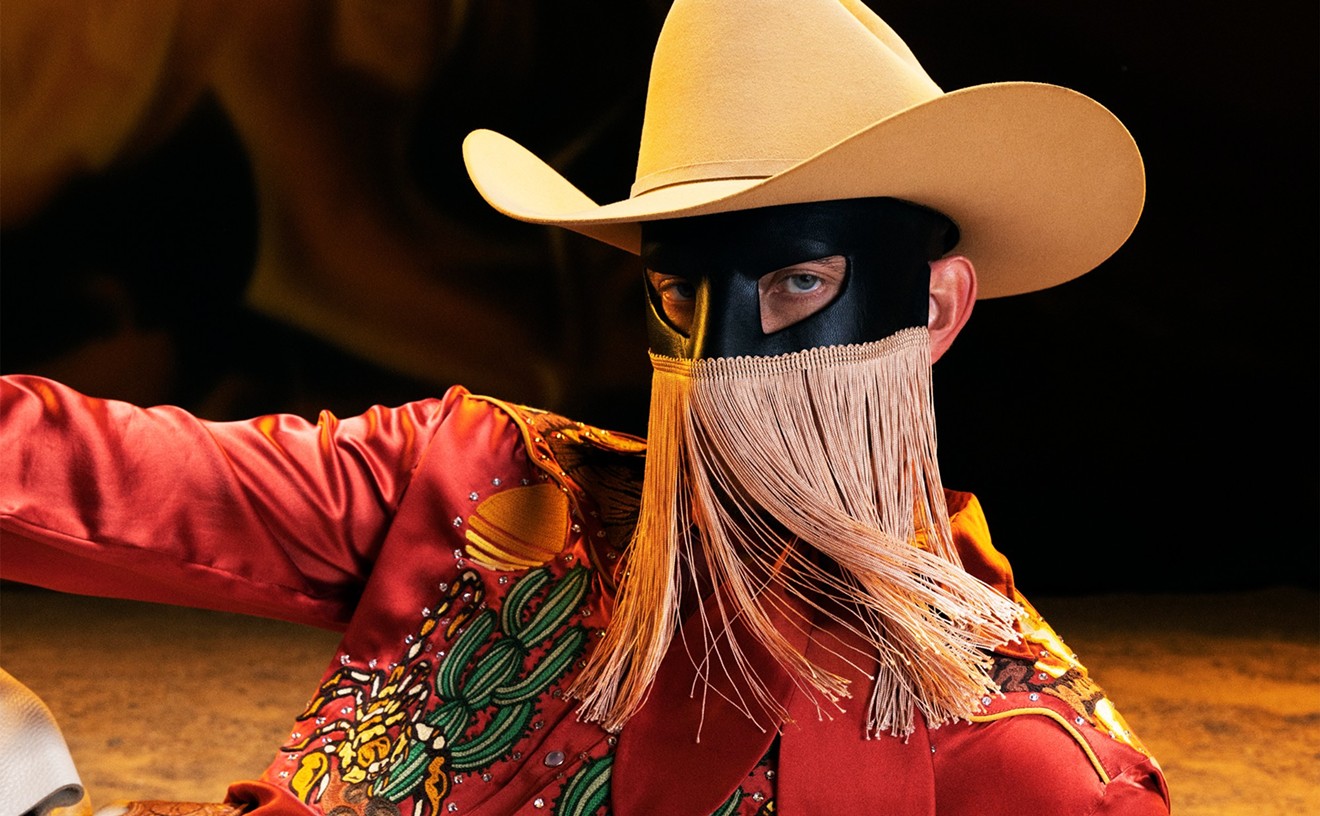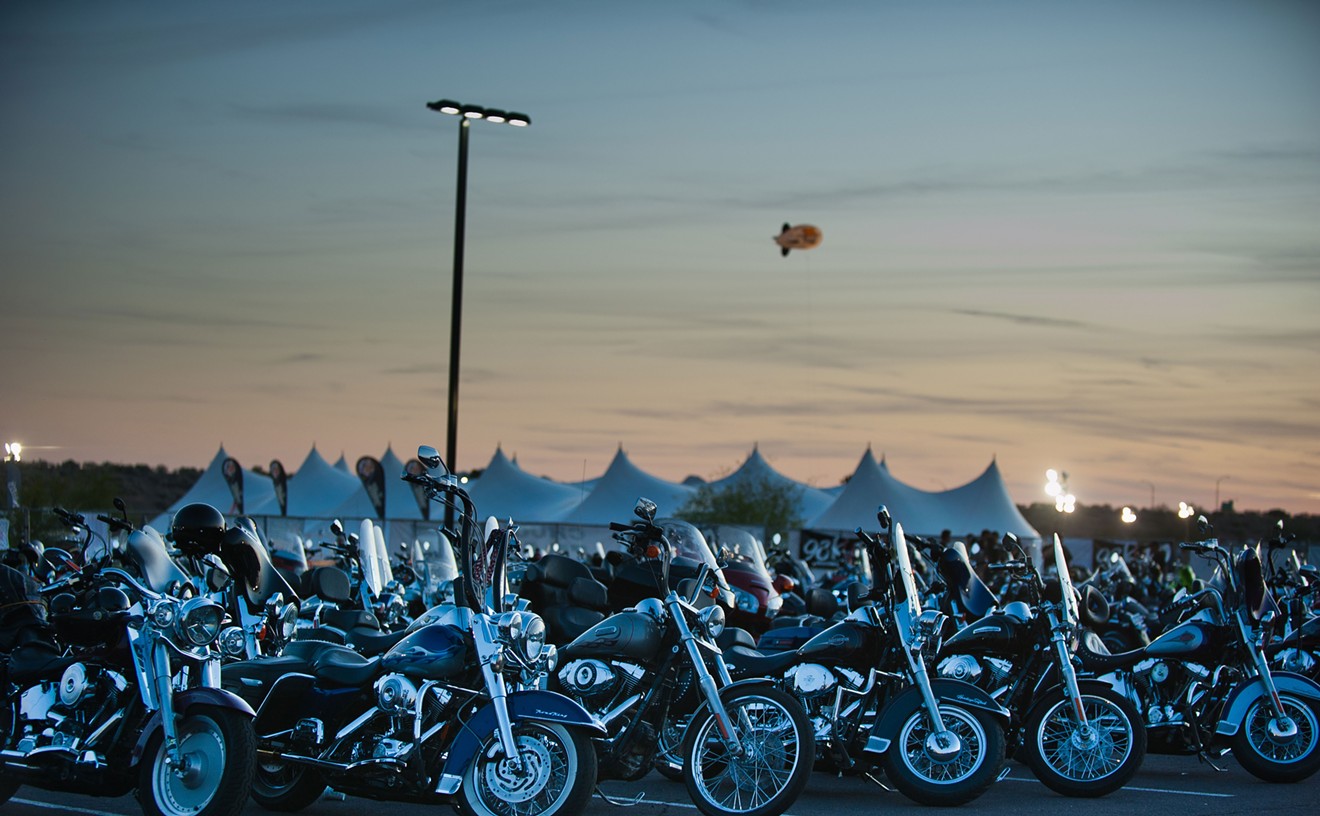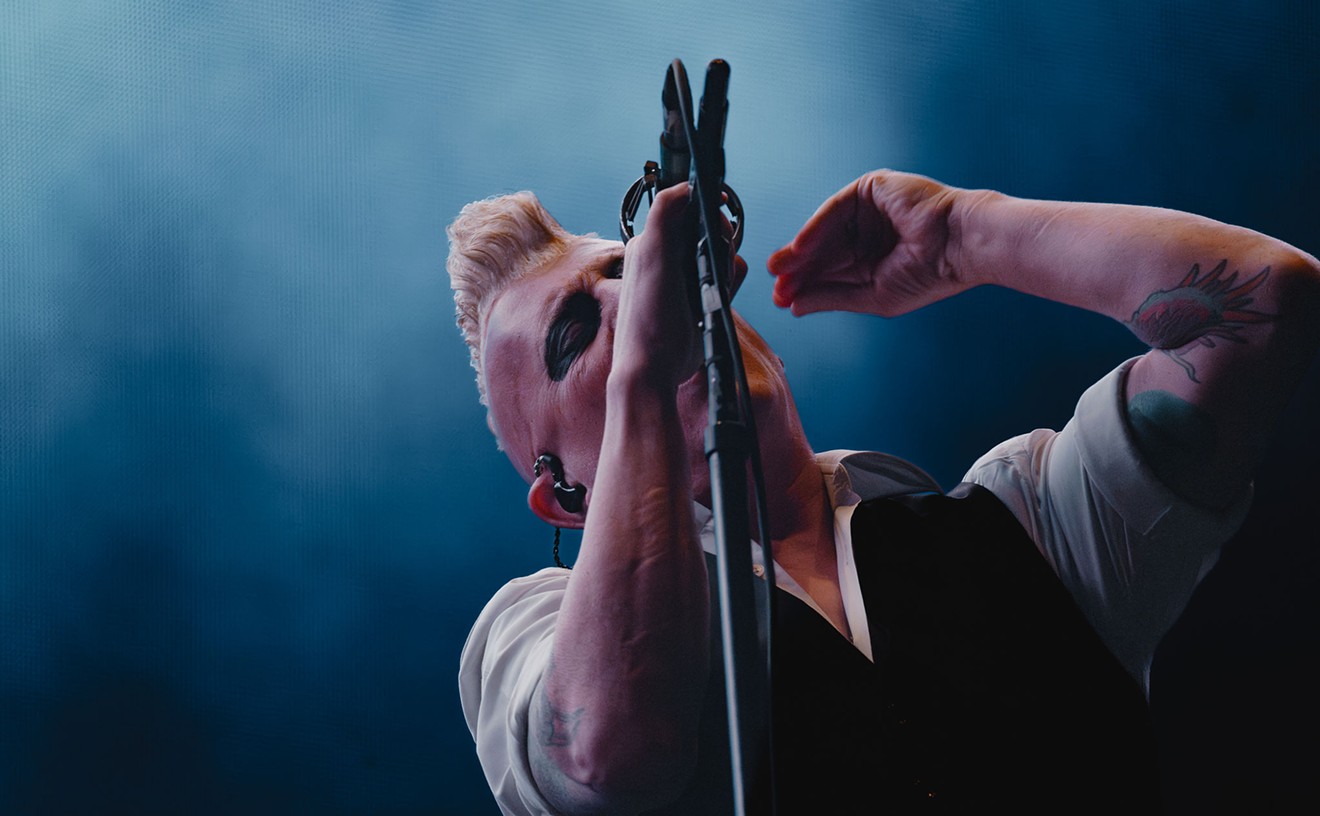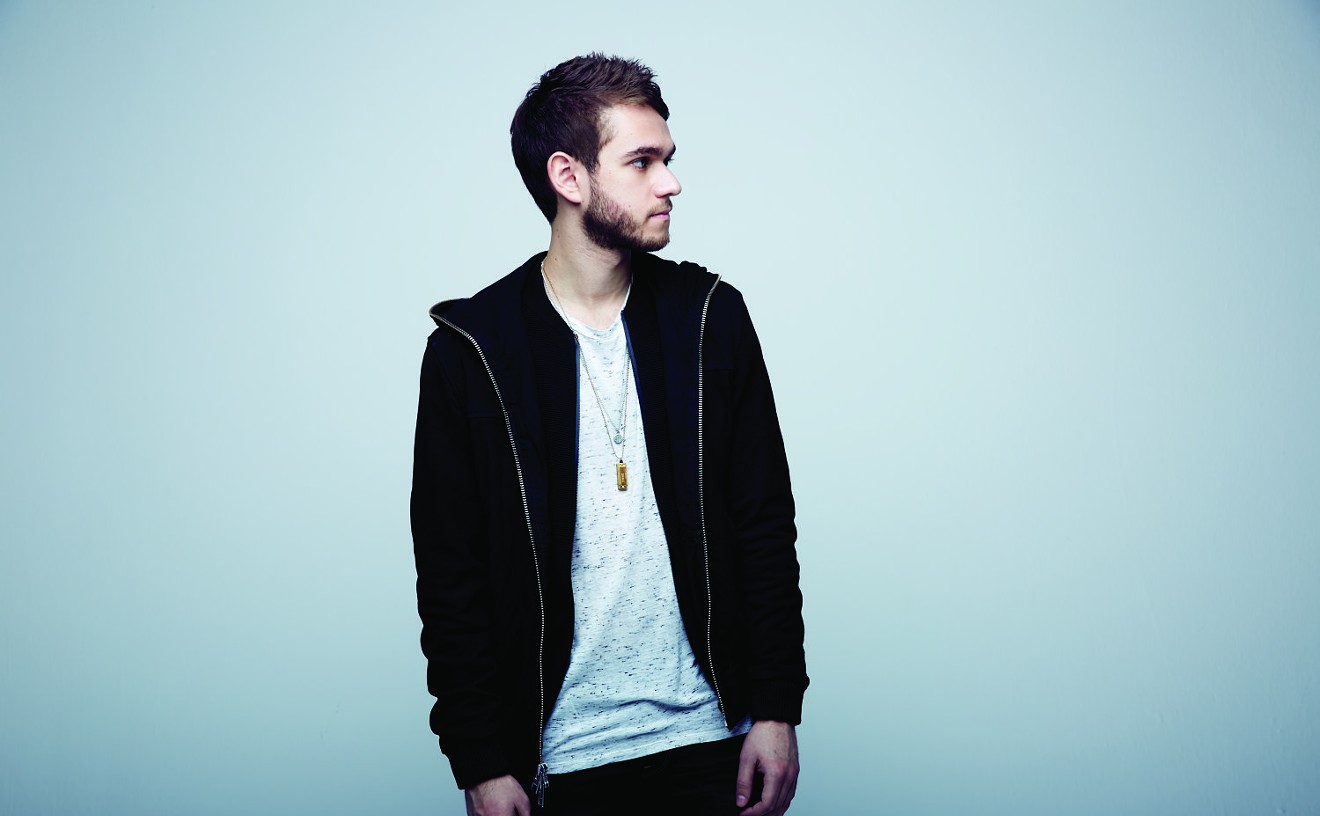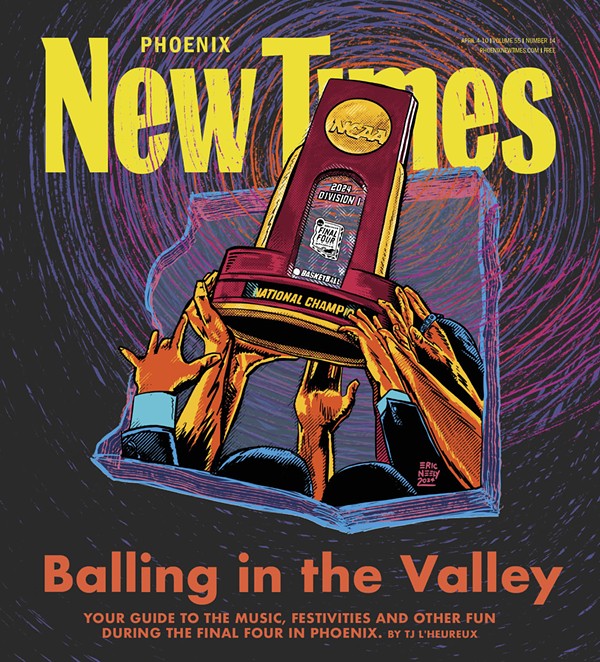It’s been more than five years since folk singer, guitarist, and banjo player Willie Watson became a solo act. After more than a decade in Old Crow Medicine Show, which he co-founded, Watson unhitched from that wagon, saying it was “something that just needed to happen."
He didn’t let much time lapse before he started putting his intricate picking skills and powerful voice to use. He’s released two records, Folksinger Vol. 1 and 2, each featuring his takes on folk standards and obscure tracks.
It’s hard to not be moved by his vocal strength alone. It has a rich, velvety smoothness that is perfect for tale-telling — the kind of tone that wraps the listener up, trapping you inside the song rather than listening with distance. When he adds that pervasive vibrato, go ahead and try not to cry. Or at least get a little misty.
Watson is scheduled to perform at Valley Bar on Tuesday, February 20. Phoenix New Times got a chance to talk with him about his beginnings as a singer and his current life as a solo artist.
New Times: Hey there, what’s happening with Willie Watson?
Willie Watson: I'm in Nashville for a day off. I've been on the road for a few weeks and about to head out for a few more. I’m just catching up on some sleep.
Before you were in bands, do you recall when you first thought you might go down a musical path?
Growing up, there was always music around; my dad was a music lover. He didn't play anything, but it was always there. I didn't realize that not everyone's house was like that. It was a big part of our lives, in the house, driving in the car. I was always feeling it. I didn't know I was going to do it, to play music, but I just loved it. I wasn't the kind of kid that was gonna go out and play football. I'd rather paint or draw or create something. Then I found that I could sing and play.
How did that happen?
I was in choir and I sang, and I didn't think anything of it. I didn't think I had a good voice, I didn't enjoy it, either [laughs].
People listening noticed your voice?
They did. I remember very specifically after a recital, people in my family said all they could hear was me. They thought I sounded good, and I didn't believe them. I didn't think I was singing louder than anyone. I didn't think anything of it. A few years later when I was about 10, Roy Orbison had that comeback hit, “You Got It,” and I loved that. And I loved the Traveling Wilburys. I wanted to know more about the musicians in that band, and my dad had their records. I was trying to imitate Roy when I was 10. People liked that and said I sounded like him. I kept at it from there.
You were in Old Crow for more than 12 years. What made you leave?
I didn't want to. It was something that had to happen.
Did you start your solo project when you were still in Old Crow?
No, that came after. I didn't leave OC to pursue a solo career. It was a trying time being in that band for so many years and it was just real hard, on everyone, I think. Something needed to change.
Interpersonal combustion?
Yeah. Being a musician and being in a band is ridiculous. It's such a stupid thing and everyone takes it so seriously and gets so wrapped up in it. It creates problems within bands and the dynamic that can get created after a while can be unhealthy and just bad, and then it's always kind of rotten and sour. Ever see that Metallica movie where they had to get therapists and lawyers?
Yeah.
It's shit like that, and it's so silly, 'cause it's not that important. We're just musicians. I mean, we do some good in the world, but at the end of the day it's not usually as important as we think. I love those T-shirts and bumper stickers that say, “I don't care about your band.” It's a good reminder for me, too, 'cause it's easy to get wrapped up in that stuff.
A solo career sounded better at that point?
I just left and didn't know what to do. I started writing songs and didn't like what I was writing. I didn't know if I was going to put together some kind of band, I just wasn't sure. I knew I had to do something and that I couldn't really wait too long. At the time, I thought I'd need to be visible before people forgot who I was. I decided I'd get out there and do some solo shows. I did, and it went all right. Dave Rawlings, my old friend and a producer of early Old Crow records, came out. He was already helping me out a lot through this transition. He liked my solo show and said, “Let’s make a record.”
You went through some trial and error.
Yeah. I was trying to write songs. I was singing some songs I’d written, and people liked them. Dave did, too, but I didn’t feel they were as good as some of my older songs. I did about three or four shows and had no idea what I was doing. Since, I've figured it out.
What were the hard parts?
Just how to get up there and do it — to still be able to put on a show and be entertaining and comfortable. To appear like I do know what I'm doing. You want to have command of the stage, so I had to figure it out. It took a little while but by the time we got that first record out, it all made sense.
Did you feel some freedom or peace once you settled in as a solo artist?
Yeah, all of those things. A lot of the peace came later. I do have that now, but that took a little while. There's freedom in it, but there's another side of it. You're up there alone — it can be restricting at times. I have to hold down the fort. I had to expand on what I knew about instrumentation and how to fill up all the space to where it was a full and complete enough sound for one person.
Would you do a band again, at this point?
At this point, it's definitely established that I'm a solo artist. I'd like to add some players and maybe turn Willie Watson into a trio or something. I'd love to do that. It’s been long enough. I'd like to find maybe just two people and go out on the road and see what happens.
Stylistically, do you want to change anything up, going forward?
There's certain styles and facets and branches of folk that I haven't put on a record yet, and I'd still love to, as long as it fit the whole picture of the record and made sense. I've never had any sea shanties. I’ve also not done any solo fiddle stuff; that would be a nice, vital thing to do. I'm not sure what the next project will be. Not sure if it will be Folksinger Vol. 3 or me and a band.
What can we expect from the live show?
Well, what seems to have happened over the years at the shows is that people find them really moving. I am an expressive, sensitive, emotional person, and I think that shows on stage. I might be more expressive than I realize. My face does things [laughs]. I think people see me emotional and they get wrapped up in it and by the end of the night, we’re all together on the same level, having a shared experience. I talk to people after the shows and it's so good to hear that it means something to them. Sometimes they're elated and happy, sometimes they're in tears. I’m just rocking out or getting sad, that’s all.
Anything else?
Yeah, put on your Sunday best and come on out to folk church.
Willie Watson performs at 8 p.m. on February 20 at Valley Bar. Tickets are $15 to $18 via Valley Bar's website.
[
{
"name": "Air - MediumRectangle - Inline Content - Mobile Display Size",
"component": "18478561",
"insertPoint": "2",
"requiredCountToDisplay": "2"
},{
"name": "Editor Picks",
"component": "16759093",
"insertPoint": "4",
"requiredCountToDisplay": "1"
},{
"name": "Inline Links",
"component": "17980324",
"insertPoint": "8th",
"startingPoint": 8,
"requiredCountToDisplay": "7",
"maxInsertions": 25
},{
"name": "Air - MediumRectangle - Combo - Inline Content",
"component": "16759092",
"insertPoint": "8th",
"startingPoint": 8,
"requiredCountToDisplay": "7",
"maxInsertions": 25
},{
"name": "Inline Links",
"component": "17980324",
"insertPoint": "8th",
"startingPoint": 12,
"requiredCountToDisplay": "11",
"maxInsertions": 24
},{
"name": "Air - Leaderboard Tower - Combo - Inline Content",
"component": "16759094",
"insertPoint": "8th",
"startingPoint": 12,
"requiredCountToDisplay": "11",
"maxInsertions": 24
}
]

